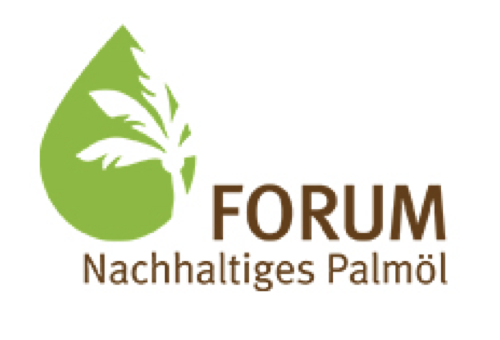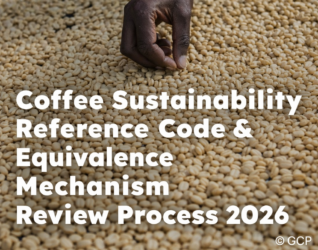The multi-stakeholder partnership Forum for Sustainable Palm Oil (FONAP) has now existed for six years and has released its annual progress report once again. We spoke to Lyudmila Metzdorf, Head of the Forum Secretariat, about FONAP’s achievements.
The Forum for Sustainable Palm Oil (FONAP) is an association of over 50 members consisting of companies, non-governmental organisations, associations, the Federal Ministry of Food and Agriculture and the Federal Ministry for Economic Cooperation and Development. The forum was launched in September 2013 and has been organised as an association since November 2015. The aim of FONAP is to promote sustainable agricultural supply chains with a focus on palm oil. Particular attention is paid to supply chain transparency and factual dialogue around the commodity. All members of the Sustainable Palm Oil Forum have publicly committed to using only certified, sustainably produced palm oil.
2020/21 was rich in learning experiences and important developments for FONAP, not only because of the COVID pandemic. The successful digital participation in January at the Berlin International Green Week and the development of the German language guidebook “Better Shopping“ were the start.
In close cooperation with FONAP, the German Institute for Human Rights conducted a study on human rights in the palm oil sector. The aim of the study was to shed light on human rights challenges in the palm oil sector and to develop proposals for taking action. The work on our regular palm oil market study and a study on the impact monitoring of certification schemes for sustainable palm oil confirm that FONAP and its members are making a significant contribution to strengthening the sustainable production of industrial and consumer goods. Furthermore, the members have revised the strategic-operational agenda and the objective.
Palm oil production has continued to increase, in particular due to the rising global demand for fat and oil. In the period from 2009 to 2019, it rose from 46 million tonnes to 76 million tonnes, and the trend is continuing.
Vegetable oils from coconut, sunflower seeds or canola do not have the level of versatility as palm oil. Moreover, they require more cultivation area than oil palms. About one hectare is needed for about 3.3 tonnes of palm oil, seven hectares for the same amount of soybean oil, and about four hectares for coconut oil, sunflower oil and canola oil.
In the years to come, it will be particularly important to resolve the tension between food security and landscape protection. So far, the share of ecologically and socially responsible palm oil worldwide is only around 25 per cent. The use of sustainably produced palm oil varies greatly from country to country. In Germany, 1.26 million tonnes of palm oil were consumed in 2019, of which an average of 83 per cent were sustainably produced and certified – an above-average proportion by international standards!
However, this varies greatly depending on the sectors. Palm oil is used in the production of food, in the chemical and pharmaceutical industries, in animal feed and in energy production, although the latter is not part of FONAP’s area of work. In the German food industry, 90 percent of the palm oil used is already sustainable, while the share in the derivatives sector and in animal feed is significantly lower. Here, it is important to better understand the challenges and develop solutions together with the relevant stakeholders along the supply chain – also with regard to more transparency. FONAP is committed to ensuring that only sustainable palm oil is used in all sectors, both in Germany and internationally.
As a multi-stakeholder partnership (MSP), information platform and technical advisor, FONAP and its members are uniquely positioned to support other sectors (e.g. animal feed, chemicals, pharmaceuticals) as successfully as it has so far primarily done in the food industry. The voluntary commitment of members in the producing regions is also exemplary. Our collective member project in Indonesia started in March 2022 (see below).
FONAP is now internationally recognised as a centre of expertise and contributes to differentiated communication on the topic of palm oil with specific activities. The forum has been organised as an association since 2015, and its members have since done a lot of valuable work to increase the share of certified sustainable palm (kernel) oil in Germany.
In the international comparison, Germany is not one of the largest consumers of palm oil, yet initiatives and contributions from Germany often have a signal effect, especially in the European context. More recently, these include the Act on Corporate Due Diligence Obligations in Supply Chains or the EU proposal for a regulation on deforestation-free products.
FONAP also advocates for ecologically and socially sustainable palm oil production in the producing countries. One example is the support of farmers in Jambi, Indonesia. Through our partner organisation FORTASBI, we offer training on sustainable landscape management (including soil and water conservation, social forestry) and regenerative agriculture. Collective projects such as this one or its predecessor with Wild Asia and WWF in Malaysia are fully funded by voluntary contributions from FONAP members.
Firstly, all members have committed to using 100 per cent certified palm oil. – This is a prerequisite for becoming a member of FONAP. Compliance with this target is verified through annual reporting.
It has become evident that it is advantageous for the transformation of the palm oil sector that FONAP is a multi-stakeholder partnership. Members include the Federal Ministry of Food and Agriculture and the Federal Ministry for Economic Cooperation and Development, companies (traders, manufacturers, trading partners), NGOs and associations. The association has brought together actors who were not previously in exchange with each other. To bring about change at scale, this form of premarket cooperation is very helpful.



